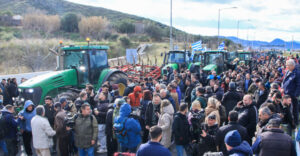The ancient city of Kane has been discovered by geo-archeologists in the Aegean province of Asia Minor. The lost island mentioned in ancient texts is believed to be the site where the famous battle of Arginusae took place between the Athenians and Spartans in the 406 century BC. Following the Athenian victory, the state’s commander was tried and executed becahse he did not help the wounded soldiers or bury the dead. The ancient city of Kane gave its name to the peninsula, and is believed to be the harbor chosen by the Romans during the war against Antiochas III in 191-190 B.C.
Geoarcheologists surveying the area found that samples showed that this was the region mentioned in ancient texts. They carried out surface surveys near Dikili’s Bademli village, coming to their conclusion after examining samples from the underground layers. They realized that one of the peninsulas was in fact an island in the ancient era, and its distance from the mainland was filled with alluviums over time.
The geo-archaeologists involved in the excavation were from Cologne University in a project led by the German Archaeology Institute.

Archaeologist Prof. Felix Pirson said, considering the architectural remnants and ceramics in the village, they had discovered the location of Kane on the peninsula in Bademli village.
“It had been a matter of discussion if the islands here were the Arginus Islands or not until our research began,” said archeologist Professor Felix Pirson. “But then we revealed that the ancient Kane was located on an island in the past. The strait between this island and the land was filled with alluviums and created this peninsula. We will get more evident info after examining the geological samples.”
The diggings also revealed the quality of harbors in the ancient city of Kane, and it is believed that this place was like a way station among important routes such as Lesbos and ancient Adramytteion in the north and Elaia, the main harbor of the ancient city of Pergamon, in the south.



Ask me anything
Explore related questions





